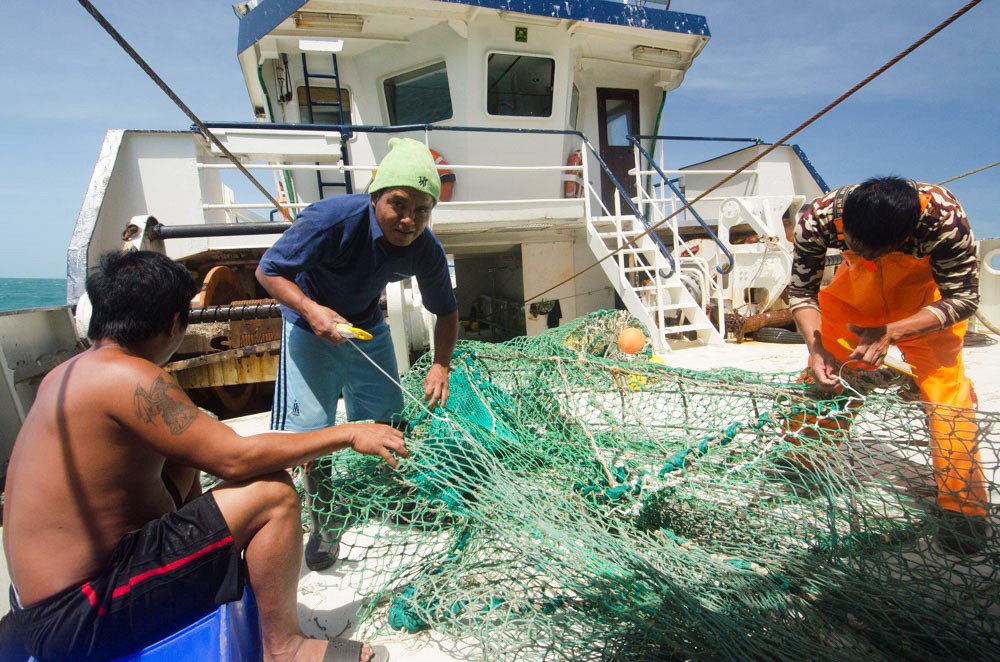Testing fishing gear in public-private partnership
Paramaribo, 1 March 2018
The demersal finfish trawling fleet of Suriname is known to occasionally capture sea turtles and other potentially vulnerable species such as rays, sharks and groupers. Within the support of REBYC-II LAC, the Suriname Fisheries Department aims to reduce this unsustainable bycatch by implementing a suitable Turtle Excluder Device (TED) for this fishery.
 |
| Fishermen installing a flexible Turtle Excluder Device into a fish trawl. © Tomas Willems |
To this end, flexible TEDs made of steel cable have been developed in cooperation with the Harvesting Systems Unit of NOAA’s National Marine Fisheries Service (USA). The TEDs are currently being tested on commercial fishing trips, in a partnership between the Fisheries Department and the fishing industry. This approach has several advantages over testing on a chartered commercial or research vessel. Obviously, the TEDs should not have a large negative impact on the quantity of target catch. The TEDs should also be practical to handle and shouldn’t negatively affect safety on board, catch processing or quality of the catch. By testing the gear in commercial fishing circumstances, these aspects can be evaluated in real-life situations, which is important to identify issues that might hamper adoption of the device by the industry. The involvement of fishers in the testing process also yields valuable insights for improvement of the gear, based on the fisher’s knowledge and experience. Finally, involving the fishing industry in the sea-trials from the very beginning creates more ownership of the testing process and its results, which might positively affect the acceptance of the new gear.
The demersal finfish fleet in Suriname is mainly export-oriented. The industry agreed on participating in the gear trials because it is in their own interest to have a practical and workable TED. As market demand for sustainable fishery products is increasing, clients might be requiring the use of a TED in the future. Further, the TEDs are likely to have side benefits like improved fuel consumption, less sorting time of the catch and better catch quality. Based on two testing trips so far, the flexible TEDs have proven very effective in reducing unsustainable bycatch, reducing the discard rates for rays by up to 95 %. This also has a positive effect on quality of the fish and the catch sorting process. The loss of target catches, however, is still too high to make the device acceptable for the industry at present. In 2018, further improvements to the TEDs will be tested to overcome this problem.
